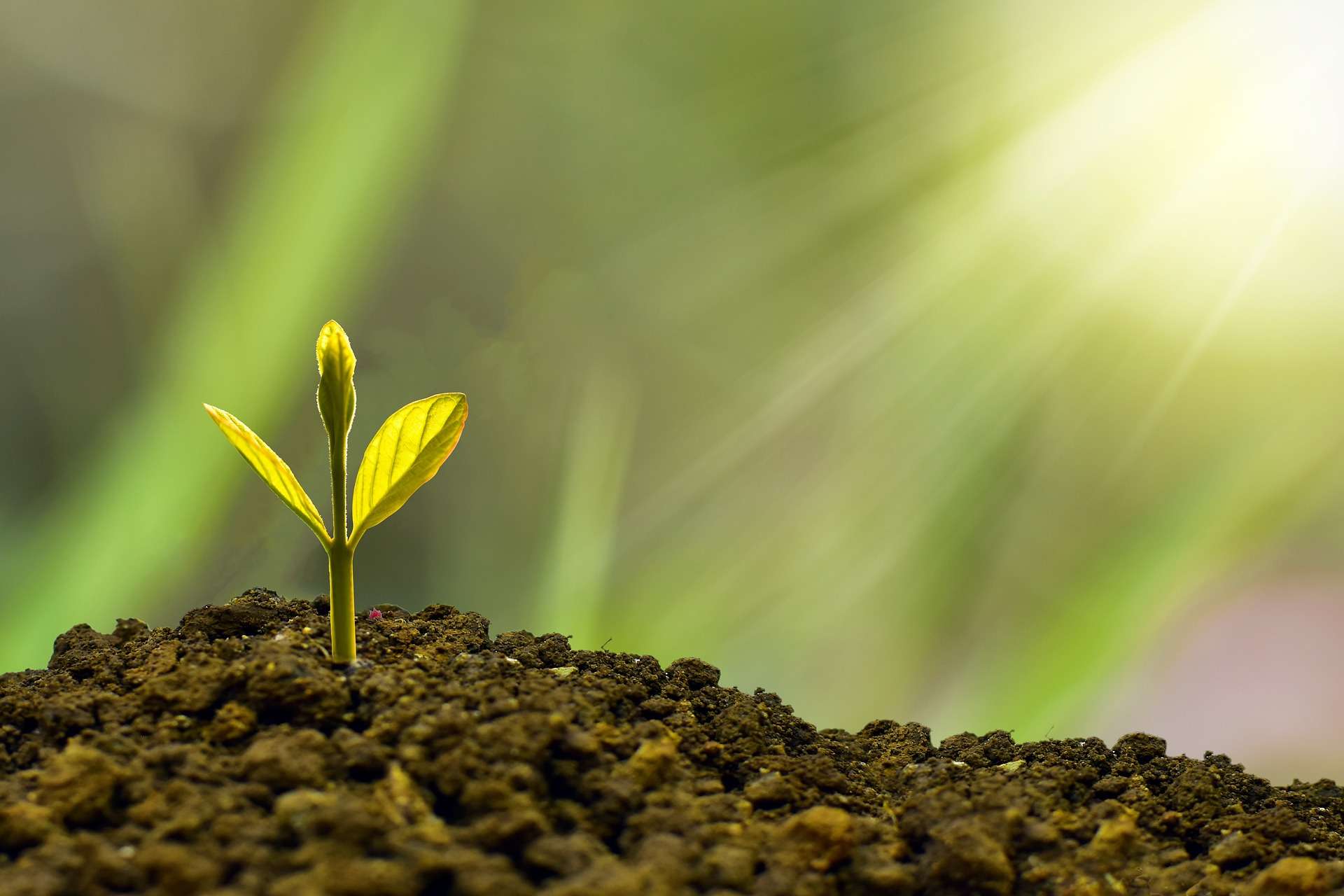The term ‘Green Economy’ refers to an economic concept that includes environmental, social, and economic dimensions. The concept implies a need for economic growth while reducing unsustainable strains on the quality and quantity of our natural resources. The concept of the Green Economy has primarily gained traction as a response to multiple crises in recent years, particularly regarding climate, food, and the economy. Achieving a Green Economy would also provide an alternative path to growth, while protecting global ecosystems and, as a result, contribute to poverty reduction. A Green Economy boosts employment and income by investing in economic activities, infrastructure, and assets. It reduces carbon emissions and pollution, improves energy and resource efficiency, and protects biodiversity and ecosystem services. Obviously education will have to play a role in achieving the Green Economy. What exactly is the role of education in executing this vision?

the main principles of a green economy
The three main areas of the current work on the Green Economy are (UNEP):
- Advocacy of a macro-economic approach to sustainable economic growth, through regional, sub-regional and national forums.
- Demonstration of Green Economy approaches with a central focus on access to green finance, technology, and investments.
- Support for countries in terms of development and mainstreaming of macro-economic policies, to support the transition to a Green Economy.
We know that sustainable consumption, production and resource efficiency all move in unison. Sustainable Consumption and Production seeks to improve production processes and consumption practices, in order to reduce resource consumption. Upcoming changes will reduce waste generation and emissions across the entire life cycle of processes and products. In contrast, Resource Efficiency seeks to reduce the number of resources required. This includes emissions and waste generated per unit of product or service. The Green Economy takes a macroeconomic approach to long-term economic growth, focusing on investments, employment, and skills (UNEP).
Accounting For Reality
The Green Economy presents a framework that utilises transformative policies with reference to climate change, and aims to reduce carbon emissions and environmental risks, increase resource efficiency, and develop socially inclusive societies (Georgeson et al., 2017). Public and private investments in sustainable activities or green investments are imperative to foster employment and income growth. National accounting systems are dependent on their gross domestic product (GDP) as a measure of economic growth. These systems fail to consider the environmental damage and resource depletion brought about by intensive human activities. Meanwhile, the Green Economy highlights natural capital as an important economic asset that generates benefits for society. Green Economic growth emphasises the positive link between welfare and investment in human and social assets.

The Green Economy shifts the emphasis to investment, capital, infrastructure, employment, skills, and positive social and environmental outcomes (UNEP). Education is an important platform for knowledge creation and acquisition, where skills can be developed for the desired future. Education for Sustainable Development prepares students and graduates to make informed decisions and take responsible actions, to ensure the integrity of the environment, economic feasibility, and a just society for current and future generations (UNESCO, 2022; Kambo and Agaba, 2020). Higher education institutions around the world are now pursuing conservation education, environmental education, education about sustainable development, and climate change education more than ever.
The role of education in creating a green economy
The shift from the status quo to a Green Economy has implications for existing jobs and may even lead to the creation of additional jobs. Since this transition aims to address the twin challenges of environmental degradation and poverty, we need measures to justify how we will translate climate policies and investments into equal benefits for all (Lee, 2021). However, monetising the impacts of economic activities can be quite complex. The International Labor Organisation (ILO) has predicted that this transition could generate up to 60 million jobs by 2030 (ILO, 2022). Qualifications will evolve as skill requirements are aligned with the adoption of a new sustainable economy while some of the green jobs are developed further.
The Green Economy is instrumental to achieving sustainability. The labour market faces challenges in meeting the green skills required of its workforce (Nhamo, 2014). This is where the role of education comes in. Higher education is a prerequisite for acquiring relevant knowledge and skills that absorb the principles highlighted by United Nations’ Educational, Scientific and Cultural Organisation (UNESCO). This includes social inclusion, gender equality, mutual respect, and human rights, among others. Educational systems are crucial in anticipating the skills needed to deploy technological solutions. This assists in addressing the global drivers of change (Gregg et al., 2015).

Green Skills
Indeed, the Organisation for Economic Co-operation and Development (OECD, 2012) perceives combined education and training as one of the six national enabling conditions for a Green Economy. Empirical evidence also supports that under a Green Economy, the labour market tends to depend less on quantity. It apparently becomes more responsive to the quality of its workforce (Gao at al., 2019). Therefore, the role of education and training will be to provide significant input to production, by boosting efficiency and enhancing industrial structures. As a substantial component of Green Economic growth, education provides people with the skills needed to prosper in a sustainable economy, producing the capacity to work on less-trodden research areas.
The three major areas of current research on the Green Economy and the role of education are inextricably linked. Higher education is critical to the emergence of a Green Economy and sustainable development. We must not only create new jobs but also sustain them through the role of higher education, particularly in regards to re-skilling (and remaining at the forefront of research and innovation). The role of education will be to keep this new green-skilled workforce up to date with new innovations and industry knowledge. It is there that issues at the heart of the Green Economy and sustainable development agendas are addressed. In response to the Green Economy transition and sustainable development phenomena, the wheel of higher education turns, triggering a Green Economy and sustainable development. In turn, this signals continuous motion, demonstrating a contextually reflexive relationship between higher education and these development trajectories (Nhamo, 2014).
is a green economy possible?
Understanding the societal transformation required to achieve Green Economy policy from individuals and societies could transform education. This understanding could arm agents with the knowledge, means, willingness, and courage to take transformative action for a Green Economy. It could, only then, assist in understanding the complex choices that a Green Economy necessitates, motivating them to transform both themselves and society.

Developing and acquiring green skills
These may include knowledge, values, attitudes, and technical skills. These are critical to promoting long-term economic, environmental, and social outcomes in industry and the community. We must provide opportunities for workers to upgrade their skills and develop new skills. Students in technical education and vocational training, as well as other education sectors will need to acquire green skills.
Furthermore, we must continuously improve professional skills and knowledge of sustainable development . As a result, individual lifelong learning would be the standard. This includes those in sectors such as public administration, the private sector, transportation, and agriculture. This is all with the intention to create green jobs, and the vocational and technical skills required for those green jobs (UNECE, 2011). Education and training, as well as green job qualifications, are required to energise said green jobs, addressing youth unemployment. Higher education provides scientific qualifications for academic-related job opportunities in the Green Economy.
Creation of Awareness
Education can and must assist people in understanding the true connections, links, and interdependencies that exist between the environment, our energy sources, and the economy. These underpin and form the very foundation of the concept of a Green Economy. Only then will a significant portion of the population comprehend why they are unable to separate their economic concerns (Ledley and McCaffrey).
Policy advancement
In response to climate change and the Green Economy, new policies and practices are emerging. The world requires financial incentives, targeted policies, and technological innovation to catalyse new modes of production and consumption. Education, Training and Public Awareness are essential. Governments are more commonly incorporating education strategies, tools, and targets to create national development policies (Bokova, 2015). Parties are reminded of their obligations to promote and facilitate such activities at the national, sub-regional, and regional levels.
In accordance with national laws and regulations, and within their respective capacities, parties should draw focus to certain issues. The development and implementation of educational and public awareness programs comes first. We must develop adequate responses and train cohorts of scientific, technical, and managerial personnel. We will also see parties tasked with cooperating and promoting the development and exchange of educational and public awareness material on climate change and its effects. The development and implementation of education and training programs are also essential. We must include the strengthening of national institutions and the exchange/ advancement opportunities of personnel to train experts in this field. This is particularly important for developing countries (Nhamo, 2014).
Partnership
According to the United States Partnership for the Decade of Education for Sustainable Development (DESD), education is critical in generating and supporting catalytic partnerships in the context of the Green Economy. This is because educational institutions are capable of conducting research, being innovative, and sharing working models with industry. The result is long-term green jobs. Working together to promote a variety of approaches to education (for sustainable development) can have a meaningful and powerful impact.
Youth Action
The consequences of unsustainable development will be born by today’s youth and future generations. Their present and future are at stake. Young people are becoming more vocal and active, demanding immediate and decisive action and holding world leaders accountable. They address the climate crisis by empowering and mobilising youth through education. They have, and continue to envision the most inventive and creative solutions to sustainability challenges.

countries Embracing the Role of Education
The importance of acquiring new knowledge and skills for green economies has been acknowledged globally. The growth of professional and vocational skills is important in this transition.
- In the United States, a two-year program produced prototypes that integrated Green Economy learning programs from secondary to university-level study. Five states participated in restructuring their curricula, each having its own specialisation. For instance, the state of Georgia’s unique focus was on energy management while Ohio concentrated on biotech and agriculture (Nhamo, 2014).
- South Africa strengthened Green Economy research through its network of research institutions. It worked closely with academics, Technical and Vocational Education and Training (TVET) systems (Nhamo, 2014) to produce an ideal system of thought. The country invested in research programs related to Green Economy and global change implemented by higher education-related institutions.
- Indonesia embedded green content into training programs and supports the “Indonesian green entrepreneurship program.” Said program intends to promote the adaptation of green entrepreneurship (Maclean et al., 2018).
Moving Forward
Globally, entities desire to remain relevant in the ever-changing skills and employment sphere. Education must be challenged to review existing practices, expanding on them to transform into more systemic efforts. Overall, technical and vocational skills remain critical in a Green Economy, which may necessitate a revision of university programs within the context of Green Economy learning pathways.
Governments and other institutions are tasked with developing policy and must do so in order to prepare stakeholders. This includes both business and labour. The new global challenge must engage with institutions to approach educational development. Futuristic higher education initiatives should be embedded in participatory global Green Economy networks. Green learning networks that enshrine the 2050 agenda (UN, 2015) are important too. Decarbonising higher education in pursuit of a global goal of zero emissions is pertinent. As a result, it is critical to leverage these global targets in order to achieve the global agenda by 2030 (SDGs).
How can we achieve a greener economy?
Gains associated with the growth of a greener economy include creating job opportunities, eliminating hunger, and promoting a clean environment, among others.
- Investment and Incentives: Green investments, both at the international and national levels, are components that establish businesses, increasing production and supply. They improve environmental outcomes. Green investment in economic activities, infrastructure, and assets by the private and public sectors will reduce carbon emissions and pollution. This will improve energy and resource efficiency, and protect biodiversity and ecosystem services. Incentives for green growth and green investment will follow. Incentives include both tax-based and non-tax-based incentives, such as removing restrictions on foreign ownership and allowing skilled foreign workers to enter the country. Thailand uses incentives to promote new green businesses and projects. This encourages ‘non-green’ projects, adopting more efficient technologies and improving environmental performance (OECD, 2021).
- The development and implementation of policies, including green growth benefit economically and environmentally. Environmentally friendly policies will aid in targeting and reviewing sustainable development policies, ensuring that their goals and progress are transparent. In a greening global economy, privacy regulations and standards are common. Green regulations and standards apply to all goods and services, not just green products, as part of the effort to integrate green production, packaging, transportation, distribution, and recycling into global supply chains. When a trailblazing green regulation is implemented in the world’s largest market, it is unavoidable that it will impact other countries through trade. Companies that export to the European Union manufacture their products in accordance with strict European Union standards. Simultaneously, similar environmental regulations are emerging around the world. This trend emphasises the importance of standardisation.
- The Green Economy is also conveyed through nine principles, focusing on sustainability, justice, dignity, a healthy planet, inclusion, good governance and accountability, efficiency and sufficiency, and intergenerational fairness.
The Green Economy and the SDGs
The demand for a retooled curriculum and bolstered environmental education in response to the need to transition to a Green Economy from a link to SDG 4, which advocates lifelong learning. Enhancing environmental education to match green skills also provides more opportunities for training and entrepreneurship for disadvantaged groups, and contributes to SDG10 by reducing inequality. Additionally, education helps coordinate investments in jobs and skills, a prerequisite to attaining decent jobs.
To learn more about how The THRIVE Project is researching, educating and advocating for a future beyond sustainability, visit our website. You can follow our informative blog and podcast series, as well as find out about our regular live webinars featuring expert guests in the field. Sign up for our newsletter for regular updates.

